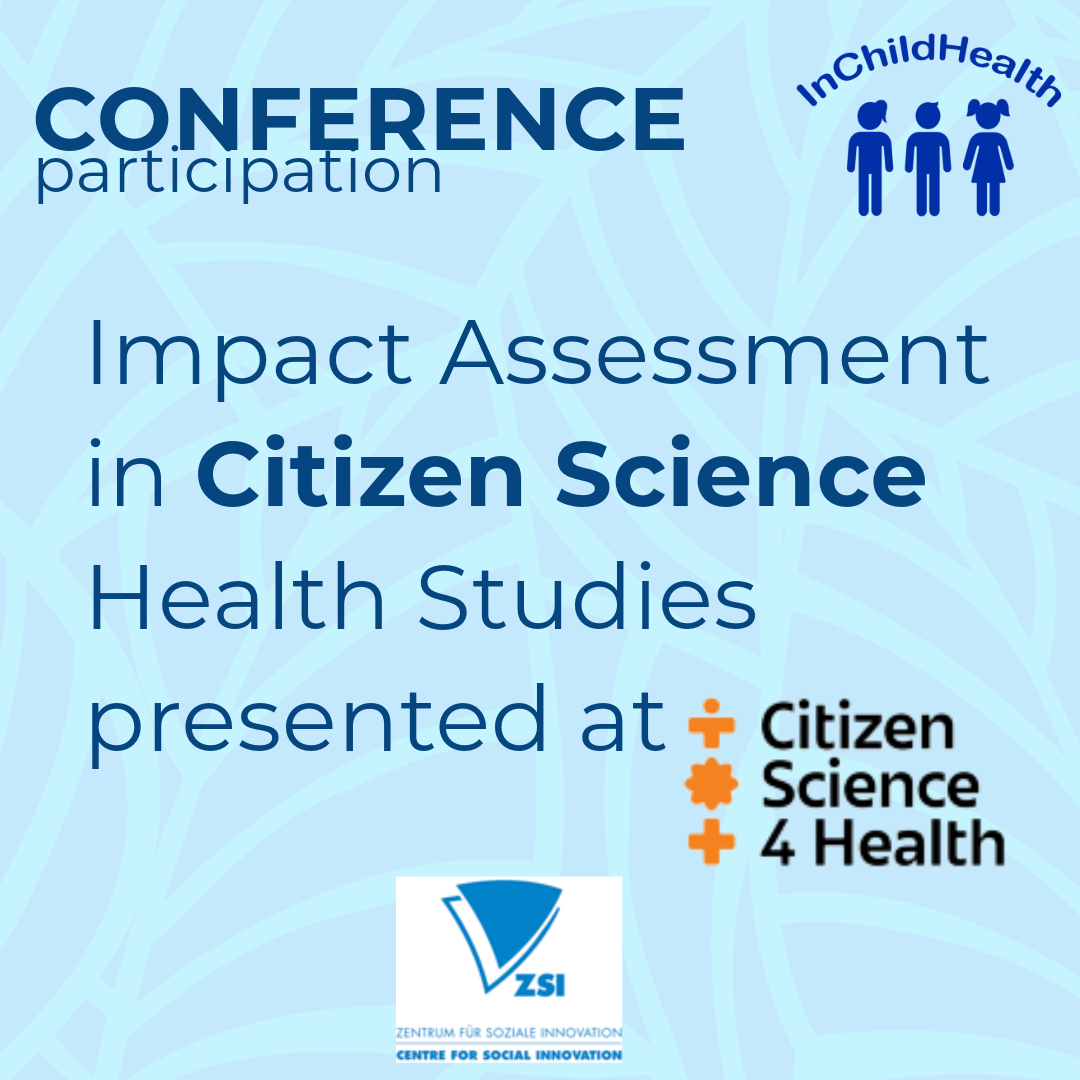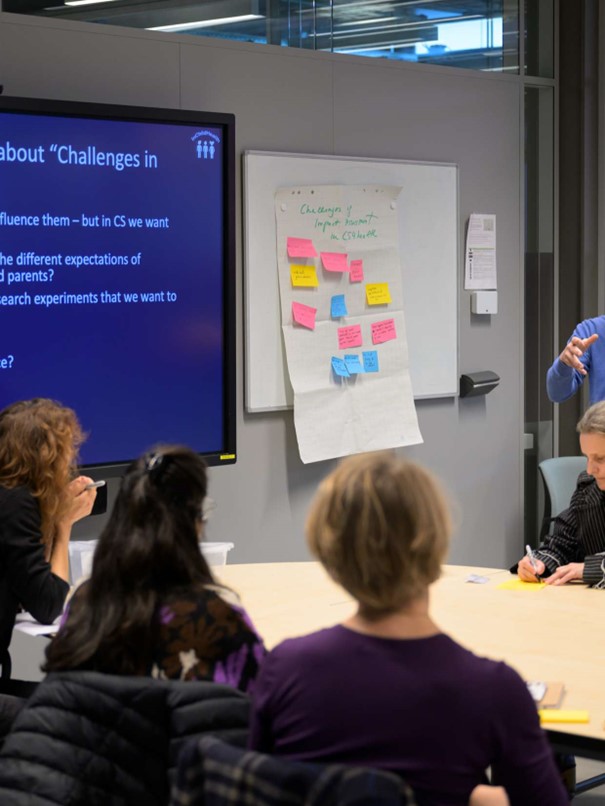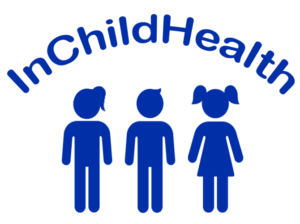
In November 2023, Teresa Schäfer and Claudia Magdalena Fabian from the Centre for Social Innovation – ZSI, participated in the 1st international Citizen Science for Health conference in Twente, the Netherlands.
At the conference the ZSI team organized a 1,5-hour solution room to discuss and further elaborate on the topic: “The Challenges of Impact Assessment in Citizen Science Health Studies” together with 25 participants of the conference.
The leading question was how individual citizens could be involved in health studies and how to best assess the impact of this involvement that goes beyond personal health insights.
During the workshop, different evaluation indicators and instruments were discussed, which are applied by the citizen science community to investigate the impact of citizen science activities on the citizens. Since the health domain is very sensitive in involving citizens scientists in research, privacy issues and ethical considerations need to specifically be taken into consideration when planning and implementing the citizen science health studies.
The workshop provided an engaged space to share experiences and discuss possible solutions for the presented challenges. A detailed analysis of the workshop will be conducted as part of the InChildHealth project.
Here are some highlighted solutions:
- Flexibility in Proposals: consider that during co-creation workshops with citizen scientists the topic or theme of research might be influenced and be subject of change – consider a “space” for this flexibility in the proposal.
- Co-creation of impact assessment: consider organizing co-creation and co-evaluation workshops with citizen scientists, connect with existing data and use models or simulations if possible.
- Careful selection of evaluation Instruments: use different evaluation instruments that are well adapted to and pre-tested by people presenting the involved citizens. Try to create more enjoyable questionnaires by integrating interactive effects, if possible, and provide incentives for long-term citizen science participants.
- Communicate throughout the Process: actively share research experiences within the citizen science community and try to communicate very clearly what the researcher really wants to know; use ZOOM or similar online meetings that allow for bi-directional communication, try to co-translate results for the respective community or stakeholder to be understood by them; do not be afraid to communicate also negative messages.
We want to thank all participants for the active collaboration and sharing of solutions and the InChildHealth project for funding our participation in the conference.

